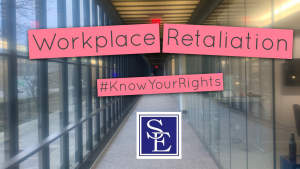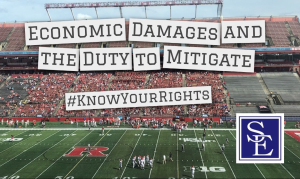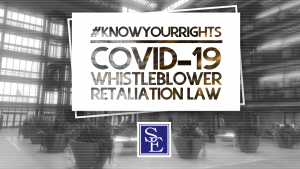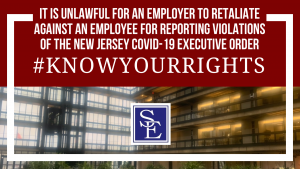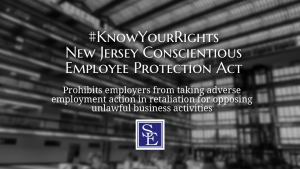As drastic changes to the U.S. Postal Service (USPS) result in mail delivery delays, some postal workers have chosen to speak publicly about how these changes are impacting their work environment. Given the highly-politicized news coverage of postal service changes leading up to what is expected to be a largely mail-in presidential election, postal workers who refuse to remain silent may face retaliation from their employer.
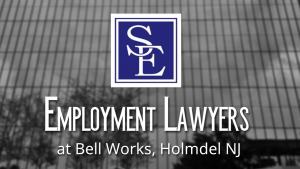 Last month, Frank Bollinger, a union official representing approximately 900 members of South Jersey Area Local 0526, gave an interview to NJ Advance Media in which he described the problems he saw at work and the negative impact they were having on both his union members and the general public. After the interview was published, Mr. Bollinger received a threatening letter from his employer that indicated his job might be in trouble for speaking publicly about workplace issues. Specifically, management responded to Bollinger’s interview by sending him a letter demanding his appearance at an investigative interview. The letter had a threatening tone, reading in part that the investigative interview would be Bollinger’s “Day in Court” and that he was facing “a very serious matter.” After NJ Advance Media published a second story, outing the employer’s letter to Mr. Bollinger, management at the USPS backpedaled and backed down. Although the post office management has since canceled the investigative interview, Mr. Bollinger questioned whether he could be disciplined for speaking out or if his speech was protected under the National Labor Relations Act (NLRA).
Last month, Frank Bollinger, a union official representing approximately 900 members of South Jersey Area Local 0526, gave an interview to NJ Advance Media in which he described the problems he saw at work and the negative impact they were having on both his union members and the general public. After the interview was published, Mr. Bollinger received a threatening letter from his employer that indicated his job might be in trouble for speaking publicly about workplace issues. Specifically, management responded to Bollinger’s interview by sending him a letter demanding his appearance at an investigative interview. The letter had a threatening tone, reading in part that the investigative interview would be Bollinger’s “Day in Court” and that he was facing “a very serious matter.” After NJ Advance Media published a second story, outing the employer’s letter to Mr. Bollinger, management at the USPS backpedaled and backed down. Although the post office management has since canceled the investigative interview, Mr. Bollinger questioned whether he could be disciplined for speaking out or if his speech was protected under the National Labor Relations Act (NLRA).
The NLRA, however, does not apply to federal, state, or local government employees, many agricultural workers, or employees who work on interstate railroads and airlines. Congress enacted the NLRA in 1935 to protect the rights and general welfare of private sector employees, encourage collective bargaining, and curtail certain private sector labor management practices that were harming workers and the U.S. economy. It is considered an unfair labor practice for an employerto interfere with, restrain, or coerce employees in the exercise of their rights under the NLRA. Under the NLRA, employees have the right to organize, form labor organizations and labor unions, appoint representatives to engage in collective bargaining, and engage in other “concerted activities” for the purpose of collective bargaining or other workplace safety and fairness issues. Concerted activities are activities that bring workers together as a cohesive group to address work-related issues. Some examples of concerted activities are talking with co-workers about wages and benefits, circulating a petition to improve hours, participating in a concerted refusal to work in unsafe conditions, and joining with co-workers to talk directly to the employer, to a government agency, or to the media about problems in the workplace. An employer cannot fire, discipline, threaten or “coercively question” an employee for any of these activities. A single employee may also engage in protected concerted activity if he or she is acting on the authority of other employees, bringing group complaints to the employer’s attention, trying to induce group action, or seeking to prepare for group action. However, a private sector employee is not protected under the NLRA if he or she says or does something egregiously offensive or knowingly false, or if he or she publicly disparages the employer without any underlying labor controversy.
 New Jersey Employment Lawyers Blog
New Jersey Employment Lawyers Blog


